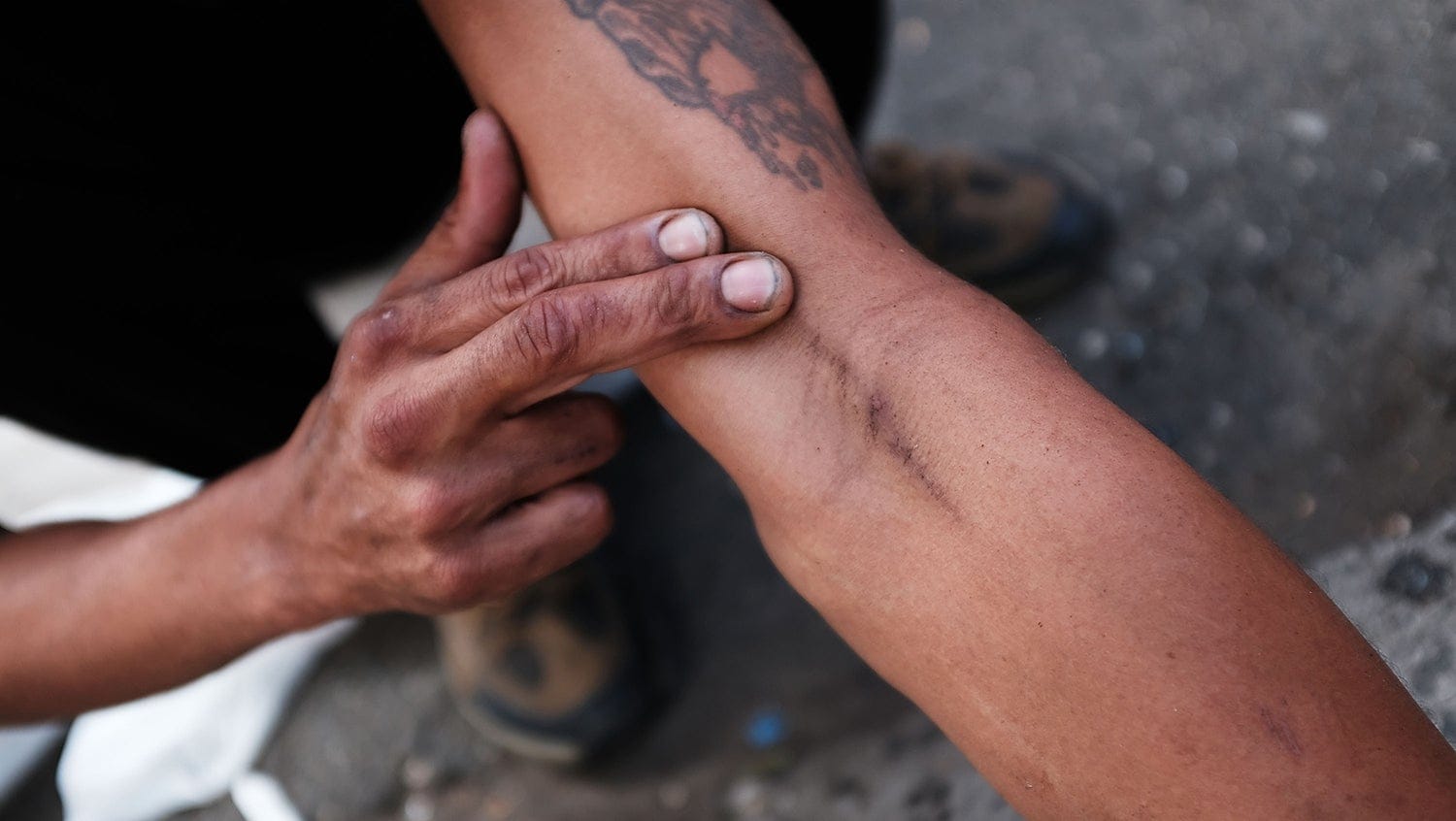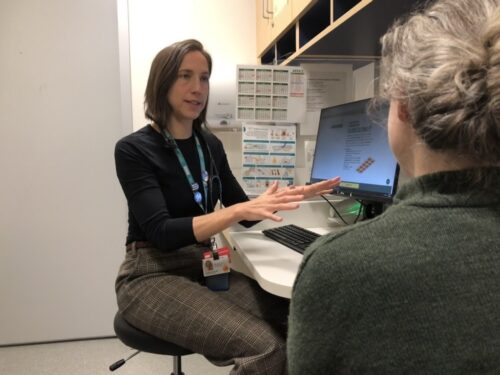
Getty Images
Experts call for integrated subspecialty training that acknowledges the relationship between addiction and infectious disease.
The opioid epidemic is becoming a crisis of infectious disease. Because many people with substance use disorder administer their drugs by injection, the opioid epidemic has led to a surge of injection-related infections, such as HIV, hepatitis C, and infections of the skin, soft tissues, bones, central nervous system, and heart. In patients with substance use disorders, many physicians treat these infections without treating the root cause: addiction. But this fragmented approach to care is a missed opportunity.
“Infectious diseases have become inextricably linked to addiction,” says Joshua Barocas, MD, a buprenorphine-waivered infectious disease (ID) physician at Boston Medical Center. His work, which often intersects addiction medicine, has prompted a call for the formalization of a new addiction subspecialty.
“When we look at the vast numbers of people who have opioid use disorder and the number who have some infectious complication, the numbers of infectious disease and addiction specialists are too small,” he says.
The interplay of infectious disease and addiction is bidirectional. Many people become addicted first, developing infections after injecting drugs. Others — like people with HIV taking opioids for their chronic pain — develop substance use disorder as a consequence of their infection. As experts in both root causes, infectious disease/addiction specialists would be well equipped to treat both types of patients holistically.
But reception to an ID/addiction subspecialty has been mixed. In addition to the daily stresses of patient care and research, physicians are dealing with more requirements and external constraints than ever before, including insurance challenges, visit time limits, and maintenance of certification and education. It may be hard to fathom adding yet another demand, but the two specialties overlap in ways that actually create efficiencies. Mounting evidence suggests that integrating addiction medicine care with infection care can be cost-effective, improve overall patient outcomes, and even reduce mortality rates.
The importance of dual infectious disease/addiction specialists
Barocas has prescribed the opioid agonist drug buprenorphine to many of his patients with substance use disorder, but he’ll never forget the first. That was the man who helped shape his mission to develop an addiction subspecialty for infectious disease physicians.
In addition to opioid use disorder, the patient had hepatitis C, an infectious disease common among people who inject drugs and that is treated with expensive antiviral medications. His insurance policy required him to be drug-free for a period of time before they would pay out.
“I explained to him that buprenorphine would not only treat his underlying opioid use disorder, but also help him get treatment for his hep C,” Barocas says. “He saw me treating him as an entire person who was more than the sum of his diseases.”
Opioid agonist medications such as buprenorphine and methadone also serve as preventative measures for patients with substance use disorder. When people reduce or eliminate injection drug use through treatment, they reduce their risk of sustaining or transmitting infections.
What’s more, integrating addiction care into infectious disease care makes sense for the patient populations who are treated by ID physicians. Instead of running late because they must attend an appointment at a buprenorphine clinic and then rush across town to the infectious disease clinic, an integrated approach that acknowledges the relationship between the conditions would allow patients to be treated in the same place for both needs, thereby saving time for all involved and improving the quality of care.
“It’s a short-term investment on the physician’s part, but there’s a long-term pay-off,” says Barocas.
More physicians have a role to play
Infectious disease physicians have the option to pursue fellowships to subspecialize in transplant medicine, yet the same opportunity isn’t widely available for addiction medicine. Currently, Boston Medical Center, where Barocas works, is home to one of the only combined infectious disease/addiction fellowships in the nation. We need more, says Barocas.
“If there’s a medical student out there who wants to make real change and impact the lives of people who are oftentimes forgotten or disregarded, then doing something like this would be incredibly useful to society,” he says. “We don’t have enough clinicians to take care of the vast patient population we’re looking at. Truly, when I say we need you, it is a call for help.”
Beyond fellowship trainings, infectious disease physicians and addiction physicians need to interact more. Barocas suggests that infectious disease physicians should be available for real-time consults within addiction medicine clinics (and vice versa), and he advocates for conferences that bring together the perspectives of both disciplines.
But to make a dent in the opioid crisis and truly transform care, subspecialty training is just the beginning. More physicians, whether they’re infectious disease specialists or not, need to obtain their buprenorphine waiver and incorporate the tenets of harm reduction practices into their care, including educating themselves and their patients about addiction medications and safer injection practices.
“What we need right now is an army of advocates,” says Barocas — people who are willing to write letters to Congress, go to the Hill, and start using person-first language.
“We happen to be highlighting a very close link between infectious diseases and addiction, but that doesn’t mean it should stop there,” Barocas says. “At the end of the day, these are people with a chronic disease who have been beaten down by the system. They need champions.”


